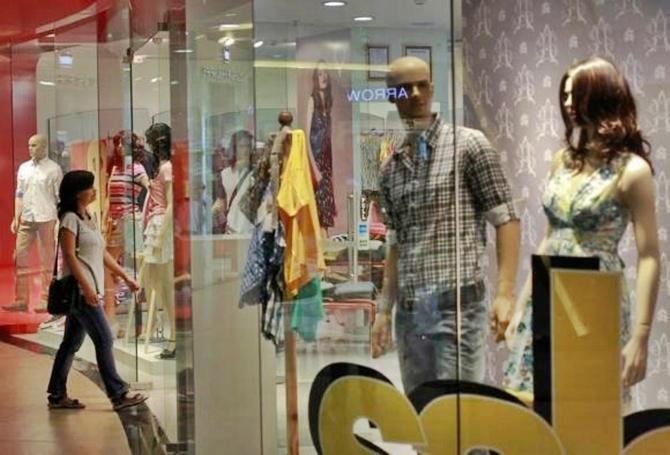While festive season spends by consumers did contribute to the uptick seen in Q3, experts said greater aggression displayed by retailers to corner a larger share of the shopper’s wallet also worked.

Like their counterparts in food services, some of the country’s top retail chains have reported strong same-store sales growth (SSG) for the three months ended December 2018.
At 8-20 per cent, which is the SSG range for most of the key players in Q3, such as Pantaloons, Big Bazaar, Shoppers Stop, Westside, V-Mart, Central and Brand Factory, have reported their strongest sales growth figures in four quarters, said analysts.
SSG is sales growth for stores one year and above.
While festive season spends by consumers did contribute to the uptick seen in Q3, experts said greater aggression displayed by retailers to corner a larger share of the shopper’s wallet also worked.
As Kaustubh Pawaskar, senior research analyst at brokerage Sharekhan, said, “For instance, most players in the fashion and lifestyle space advanced their end-of-season sales festivals (in Q3), helping them take on e-tailers far better than earlier.
"Chains were also better prepared in terms of their offers, discounts and overall shopping strategies, giving them an edge over their rivals in the online space.”
Some experts pointed out the latent demand that existed among consumers, which compelled them to make their way back to stores after a gap of a few quarters.
“Overall consumer sentiment has improved, which resulted in higher discretionary spends in Q3,” said Arvind Singhal, chairman, Technopak, a retail consultancy based in Gurugram.
According to Singhal, this uptick could last for a while, which is good for retailers.
The end-of-season sales, which begins around Christmas, was advanced by a week in December of 2018 in a bid to fend off competition from Amazon, Flipkart and Myntra.
Experts said in October and November, on the other hand, chains gained from Dussehra-Diwali spends though e-tailers were aggressive during this period, coming out with multiple rounds of shopping festivals.
According to Future Group executives, some sanity has now been brought to the market with the change in the foreign direct investment guidelines, which were announced at the end of December and have since been implemented (from February 1).
The norms bar exclusive tie-ups between e-commerce firms that follow the ‘marketplace model’ and vendors using their platform.
In a marketplace model, the e-tailers are not allowed to directly or indirectly influence the sale price of goods or services and is required to offer a level playing field to all vendors.
Retailers also remain optimistic about the overall consumption boost that the interim Budget announced last week.
Last Friday’s interim Budget, announced by Finance Minister Piyush Goyal, had a slew of measures to improve income for rural and urban consumers.
Both retail company executives and experts said discretionary income would further improve as a result of these sops, pushing up footfalls into stores. Sales growth will get a fillip.
Image used for representation purpose only
Photograph: Danish Siddiqui/Reuters











